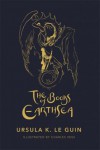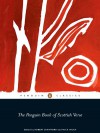Arbie's Unoriginally Titled Book Blog
It's a blog! Mainly of book reviews.
Currently reading
The Hollow Man, Dan Simmons

I'm a big fan of Dan Simmons and keen to read his fairly extensive back catalogue, rather than just pick up the new releases as they come out. I was therefore excited to find this (imported from the USA) on the shelf in a local book store.
It comes from a period of Simmons' writing prior to the hugely ambitious (and just plain huge) historical horror novels of recent years. Instead it is a fairly standard length book with a contemporary setting, though it's hard to say whether it should be classified as SF or supernatural, in the same way that it's hard to say whether his Dracula novel, Children of the Night is SF or supernatural. There it was vampires as congenital genetic disease, here it's human consciousness (and telepathy) as quantum mechanical phenomenon.
The science behind this idea was radical when it was proposed and as it turns out, wrong, but that's the way of SF, or at least one current in SF: speculating on what the implications of new ideas in science might mean if they are correct. This of course means that boat loads of SF novels are in the same heap as this one, based on erroneous ideas, because most scientific ideas prove erroneous. This doesn't mean that the heap is the trash heap, though. Numerous fun/interesting/worthwhile books are in this heap and as science marches on, more join it every year.
But is this a fun/interesting/worthwhile novel?
Initially I was disappointed - the story rambles as the protagonist lurches from one adventure to another to no obvious purpose - but that fits the character, in that he has been reduced to a state of purposelessness as the story commences. These adventures are never dull, though and as the story begins to tie up its threads in the final third it also becomes clear that the story is going to go to a very odd and interesting place and I began to feel much more positive about it.
The emotional core of the story, love, loss, suffering, is very strong and these earlier books do not have the characteristic flaws of the later Simmons oevre; lit.crit. essays and other unnecessary exposition (historical research for example) so whilst less ambitious they are perhaps more nearly perfect than say, Drood or Black Hills.
 7
7










